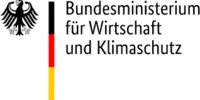Improving the performance of commercially used energy storage systems
The project Storage MultiApp aims to significantly improve the environmental and economic performance of commercial industrial storage systems (CSS).
Primarily, CSS are used to reduce operational electricity costs. This is mostly done by peak load capping. The reason for this is that peak load capping has so far been remunerated many times higher than, for example, pure self-consumption optimization in industrial plants. Nevertheless, acceptable profitability can only be achieved in a few cases. A storage system should therefore be flexibly usable in addition to grid-serving services in order to be able to operate it economically. This multi-use application means that the storage system has to complete several hundred full cycles on average per year.
The goal of the research project Storage MultiApp is therefore to develop a digital twin that couples modern cell aging models, battery hardware, and operation management strategies to enable long-term aging prediction for CSS. In this way, aging costs can be planned and optimized via hardware parameterization and modern operation management.
The Chair of Electrical Energy Storage Technology is responsible for the development of the digital twin in this project. In addition, the chair contributes significantly to the implementation of an aging-optimized multi-use operation. Within the scope of these contributions, an existing holistic simulation environment will be extended for in-depth techno-economic analyses of battery behavior in diverse application fields. Furthermore, the aging behavior of lithium-ion batteries towards the end of life will be considered and modeled.
Project partners of the TU Munich in the project Storage MultiApp are
- Varta Storage GmbH,
- TWAICE Technologies GmbH,
- TWT GmbH and
- Forschungsprofessur "Smart Energy Systems" of Hochschule Kempten.
Siemens - Smart Infrastructure is also an associated partner in the project.

Acknowledgement
This research project is funded by the German Federal Ministry of Economics and Climate Protection under the grant number 03EI6081B and supervised by the project management organization Jülich.
The responsibility for the content of this publication lies with the author.
Project Members
| Project members | ||||
|---|---|---|---|---|
| nils.collath(at)tum.de |
|
|||
| +49 (89) 289 - 26982 | sammy.jablonski(at)tum.de | Room: 3004 |
|
|
